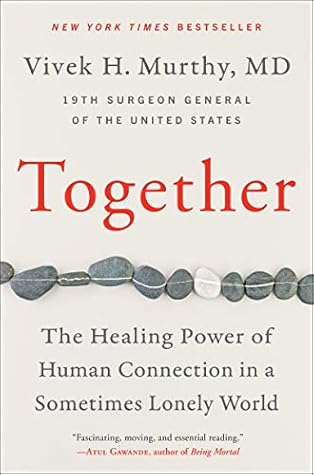More on this book
Community
Kindle Notes & Highlights
Read between
April 15 - May 22, 2023
Solitude, by contrast, is a state of peaceful aloneness or voluntary isolation. It is an opportunity for self-reflection and a chance to connect with ourselves without distraction or disturbance. It enhances our personal growth, creativity, and emotional well-being, allowing us to reflect, restore, and replenish. For millennia, monks and ascetics from various spiritual traditions have sought out solitude as an opportunity for introspection and to renew their connection with the divine. Unlike loneliness, solitude is not burdened with shame. Rather, it can be a sacred state.
It’s not just what we know about each other that counts, it’s how we get to know it. And time and attention, with a little struggle thrown in, can make a real difference in strengthening connection.
This increasingly common phenomenon of people snubbing each other in favor of their phone even has a term: phubbing. A 2015 study that surveyed 453 US adults found that 46.3 percent of respondents said their partner had phubbed them. A second survey found that those whose partners phubbed them reported more fights and less relationship satisfaction than those where phubbing was less frequent.16
Strong social connections, of course, are important for parents regardless of circumstance, but many new parents don’t realize that and are stunned to find themselves lonelier after their baby is born than before. We rarely talk about this, not only because of the stigma around loneliness, but also because it seems ungrateful to feel lonely after being blessed with a child.
Today, unfortunately, many new parents have neither family nor close friends nearby, and this particular form of isolation can be especially stressful during times of family crisis. This was the situation that Alice and I found ourselves in on Presidents’ Day weekend just after our daughter, Shanthi, turned one, when we realized something was alarmingly wrong.


